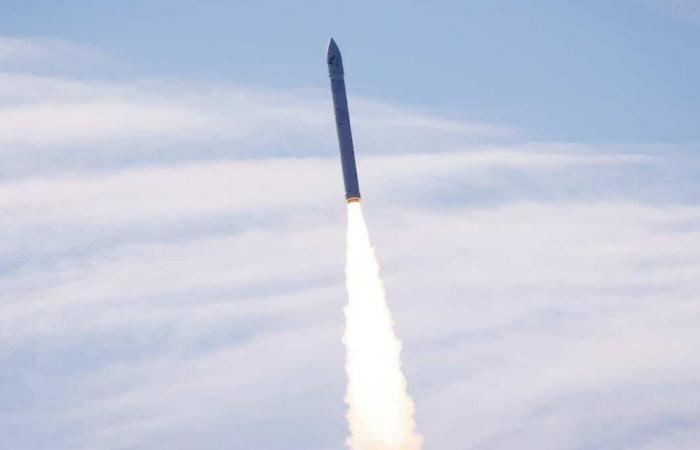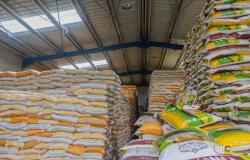Japanese aerospace start-up ispace said Thursday it had learned the lessons of a failed attempt almost two years ago before the launch of its second unmanned lunar mission, scheduled for January 15.
• Also read: Japan ends the mission of its lunar vehicle, a year after its launch
• Also read: ON VIDEO | Private satellite launcher explodes shortly after takeoff in Japan
• Also read: The Japanese lunar craft SLIM has restarted, after two weeks of forced rest
In April 2023, the company’s first space shuttle made an unrecoverable “hard landing”, which dashed its ambitions to be the first private company to land on the moon.
Some time later, Houston-based Intuitive Machines achieved this feat with an unmanned craft that landed at the wrong angle but was able to perform tests and send photos.
Although not the first, ispace therefore wants to earn its place in the history of space at a time when missions to the Moon are booming, both on the part of governments and that of private companies.
“At ispace, we were disappointed by the failure of Mission 1,” ispace founder and CEO Takeshi Hakamada said at a press conference on Thursday.
“But this is why we hope to send a message to people across Japan: it is important to challenge yourself, after experiencing failure and learning from it (…) We will make this Mission 2 a success,” he proclaimed.
The new lander, called Resilience, will take off from the Kennedy Space Center in Florida on Wednesday, at the same time as another lunar lander built by the American company Firefly Aerospace.
If Resilience lands successfully, it will notably deploy mini vehicles from commercial partners.
Firefly Aerospace’s Blue Ghost lander will arrive on the Moon after a 45-day journey, followed by ispace’s Resilience, which the Japanese company hopes will return to Earth between the end of May and June.
Only five countries have successfully landed a spacecraft softly on the Moon: the Soviet Union, the United States, China, India and, most recently, Japan.
Many companies are competing to provide cheaper and more frequent space exploration opportunities than governments.
Space One, another Japanese startup, is trying to become the first Japanese company to put a satellite into orbit, with some difficulty so far.
Furthermore, Toyota, the world’s number one car manufacturer, announced this week that it would invest 43 million euros (7 billion yen) in the Japanese rocket start-up Interstellar Technologies.
“Global demand for small satellite launches has increased nearly 20-fold, from 141 launches in 2016 to 2,860 in 2023,” driven by private space companies, national security concerns and technological development, he said. worth Interstellar.
A segment where billionaire Elon Musk’s American company SpaceX particularly stood out.






